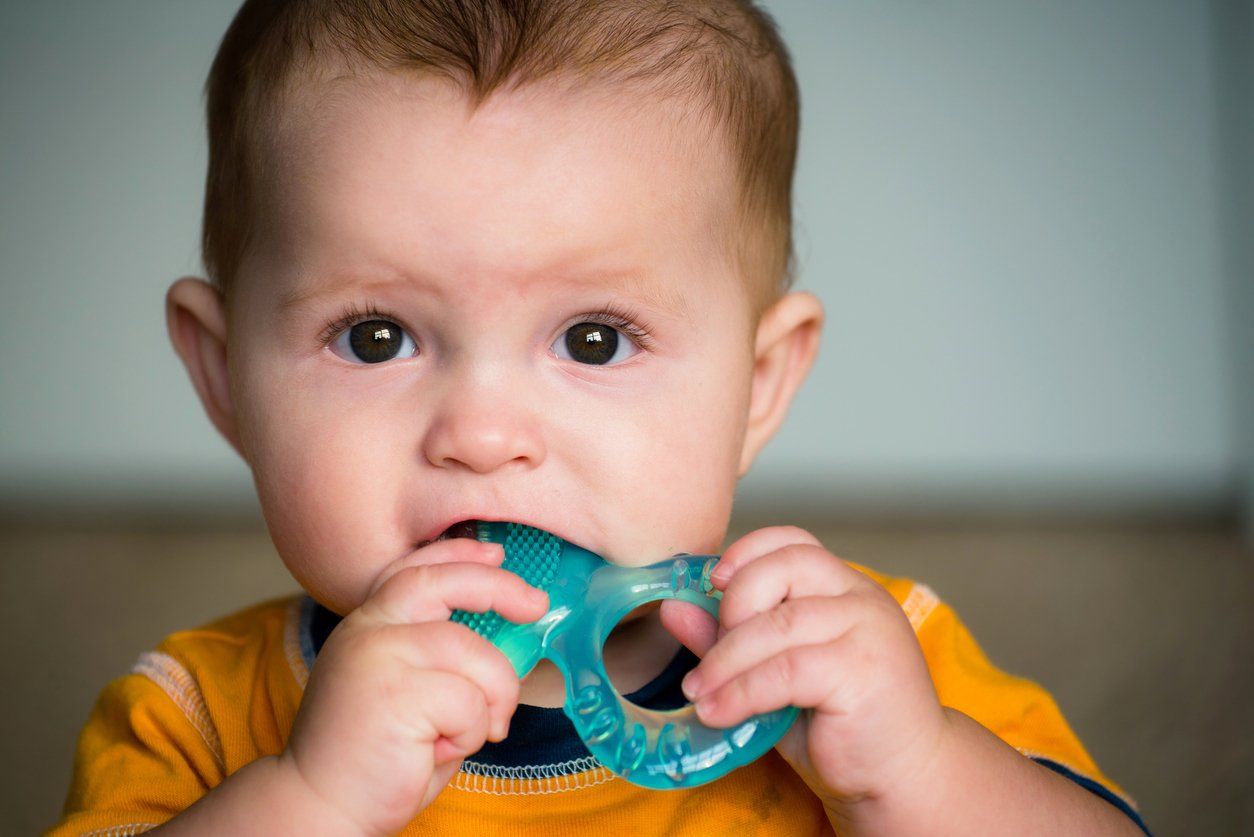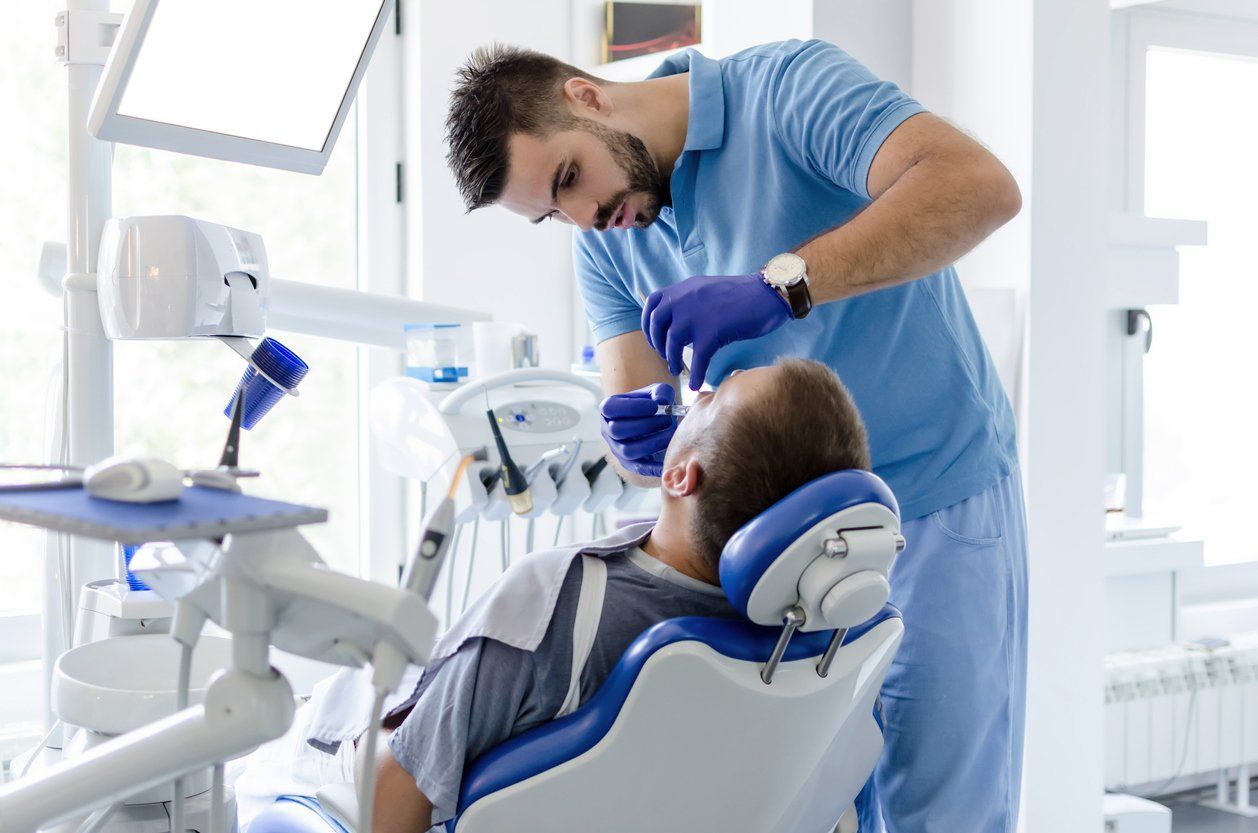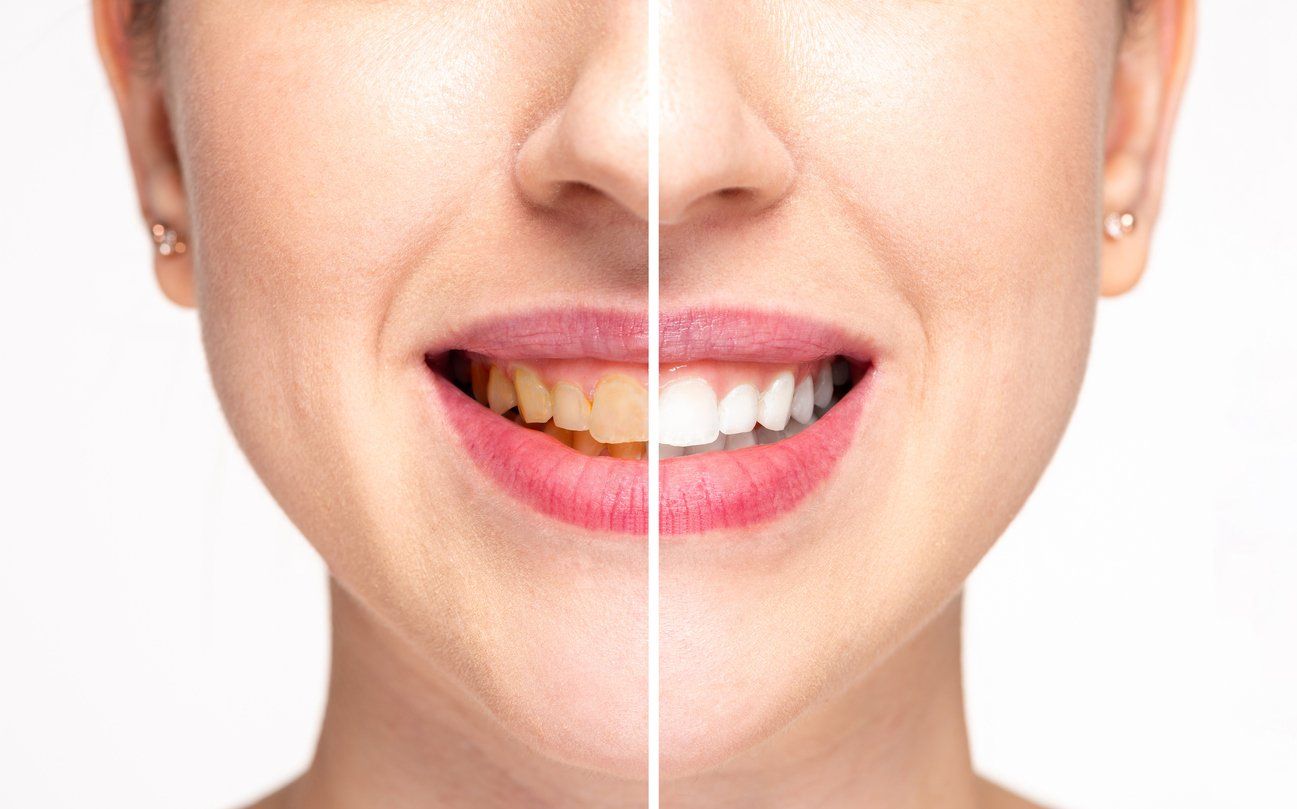Everything You Need to Know About Your Child Teething
When your child begins teething, it's natural to want to help them have as easy of a time doing so as possible. Teething is a natural process that every child goes through, but it may cause slight discomfort or even pain as your children's teeth grow. In this piece, we will discuss some of the ways that you can help your child go through the teething process.
When Does a Baby Start Teething?

Most babies start getting teeth in between 4 and 7 months eight months of age. The first two teeth that come in are generally the bottom, front two teeth. From there, most teeth will continue coming in as pairs throughout the rest of the child's first 2 1/2 to 3 years of life. By the time the child is about 2 1/2, they should have all 20 baby teeth.
Symptoms of Teething
When your baby is teething, you will notice a variety of symptoms that may appear throughout their time teething, some of those will include the following:
- More Biting
- Loss of Appetite
- More Drool
- Rashes Around the Baby's Mouth
- Additional Sucking
- Ear Pulling
- Difficulty Sleeping
- Irritability
- Teething Fever (slightly elevated temperature)
These are some symptoms that your baby is teething. If you notice these symptoms, you may wish to help your baby easy any discomfort or pain that. Your child might be experiencing. Noticing the symptoms is the first step to helping treat the discomfort/pain that they may be going through.
Soothing Remedies & Treatments for Teething
When your child begins teething, you will have a variety of options for what to do when it comes to remedies to help your child manage their discomfort/pain. The following are some of the most common ways to help your child treat the discomfort or pain and make the teething experience more pleasant for them:
- Wipe away excess drool, so the baby doesn't get rashes around their mouth
- Use over-the-counter medications that are safe such as Children's Motrin and Tylenol
- Provide hard foods such as carrots for the child to chew on
These are some of the techniques and treatments that you can provide your child to help them feel more comfortable while they are teething. While nothing may make the process painless, you can help your child feel better by providing these forms of relief.
Timeline of Tooth Eruptions
Your child's first teeth will erupt through the gum line between 4 to 7 months of age. The average child will continue getting teeth (generally in pairs) until they are about 2 1/2 years of age. The first molars will start coming in at around 15 to 18 months old for most children. However, some children can see molars come in as early as 11 months old while others wait till late as age 3. There is no one "right way" for a child to start getting their teeth in or one "right age" at which children will begin teething.
When Should I Call My Child's Pediatrician?
If your child has pain that you cannot seem to be able to get a handle on or is constantly in pain, you may call your child's physician as they may be able to help provide relief to your teething child.
If you have other questions about your child's oral health, calling your child's pediatrician should help clear up any confusion. Calling when in any doubt can help ensure that your child does not experience permanent oral health issues in the future.
Conclusion
While your child is teething, you are sure to experience a lot of parental "firsts" in your life. Your child's first teeth are very exciting, yet they can also be a very stressful time as you are not sure what to expect the first time around. If you have any questions or concerns about your child's teething, it's best to check your child's pediatrician immediately to avoid future problems.
At Marie Simon Dentistry, we acknowledge that a child should ideally see a dentist for the first time before they are a year old. When it's time for your child to see the dentist for the first time, please feel free to contact usto set up an appointment for your child to have their first-ever dental exam.










